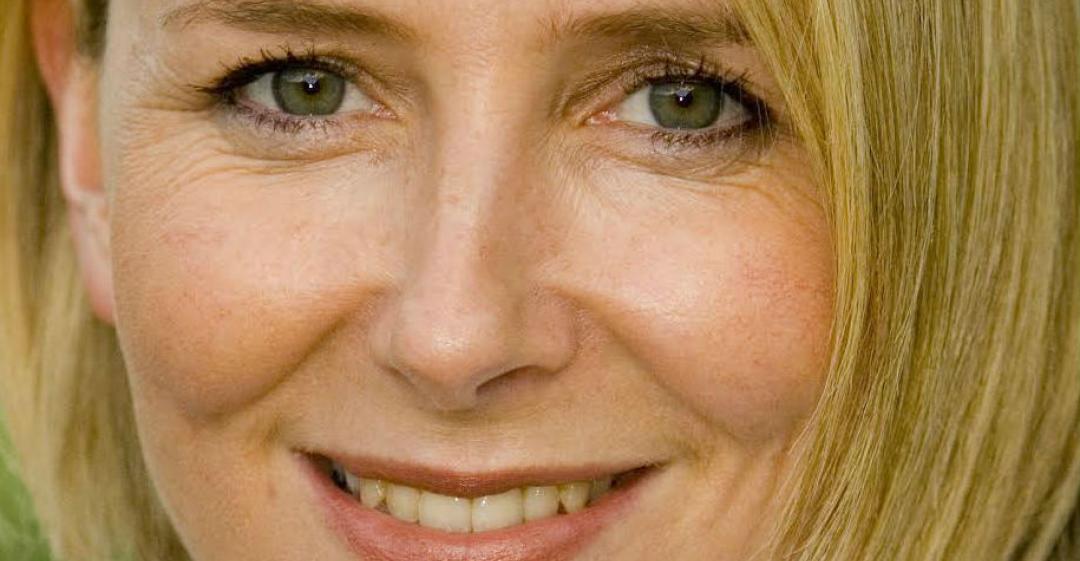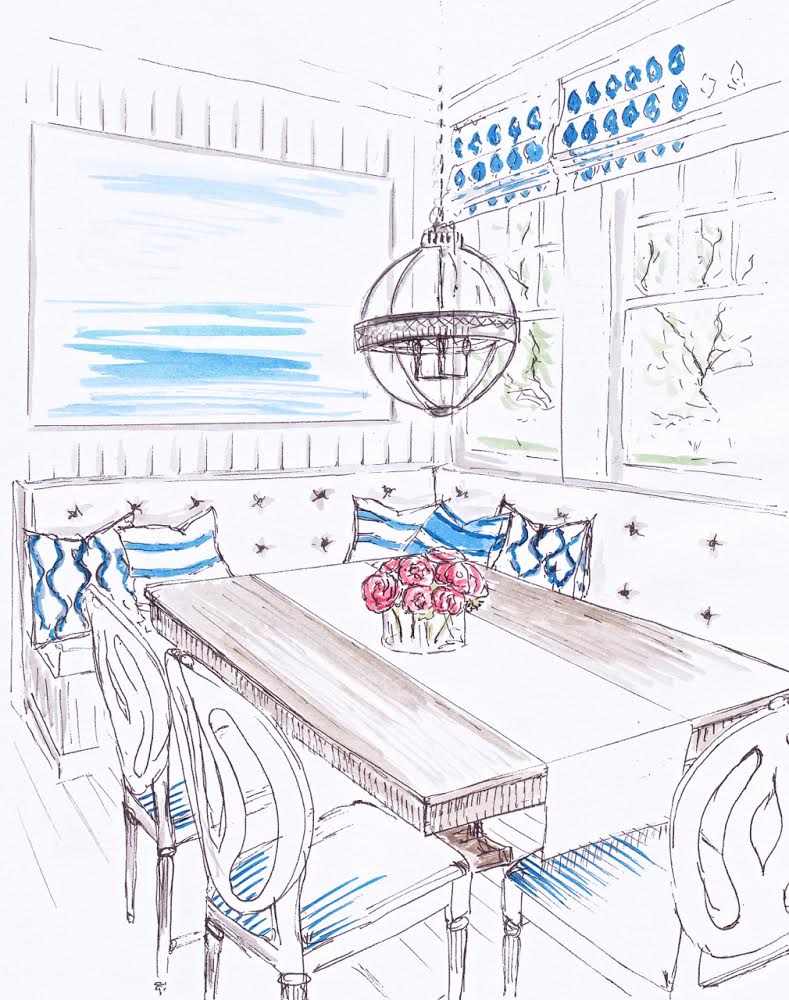“There was a slow dawning that if I didn't make a change, I would seriously regret never having given it a go.”

What work were you doing previously?
I had a career in marketing and PR, which I'd been doing for over 15 years, working mainly for large organisations.
What are you doing now?
I'm now an interior designer running my own business called Amalfi White Living, where I specialise in domestic interiors.
Why did you change?
Design was something I'd always wanted to do – the classic 'path not taken'.
Although I'd been successful by traditional standards in my marketing and PR career, I felt compelled to do something more creative; interior design was where my passion lay.
Running my own business was also something that I'd wanted to do for a long time.
When was the moment you decided to make the change?
There wasn't any one particular moment; it was more a slow dawning that if I didn't make a change, I would seriously regret never having given it a go.
Are you happy with the change?
I still pinch myself when I think how much I enjoy spending my time now, doing the creative things that I love and getting paid for it!
It's also opened up a huge avenue for me in that I've discovered how much I love illustration, so I've been able to weave this into the work I do for clients.
What do you miss and what don't you miss?
I definitely miss the camaraderie of an office environment.
I currently work on my own a lot. Although I love being at my drawing board and allowing myself to be creative in a way that wasn't possible before, I do sometimes miss the company and the structure of a traditional 'job'.
How did you go about making the shift?
For me, it was the 'jump off the cliff' approach, in that I resigned from my job and took some time out to retrain before setting up the company.
It's not an approach I would necessarily endorse, but I had a job that was quite senior and extremely demanding. My initial idea to transition into the business gradually (by retraining and then starting the company on the side while I kept working) just wasn't a viable option for me.
What didn't go well? What 'wrong turns' did you take?
I can't think of any major wrong turns exactly, but one thing I did (which, in hindsight, I wish I hadn't done) was to listen to too many people and give their opinions more weight than my own instincts.
When I was starting out in business, it was really hard to have faith in myself, especially when there was so much I didn't know.
I found myself seeking out opinions on things that I wasn't sure of; I also got loads of unsolicited advice from well-meaning friends and family. But I had to learn to listen to my own wisdom and my own instincts. I still took on board other people's advice, for sure, but I learnt not to act on it until I was confident that it chimed with what I instinctively knew was right for me and my business.
How did you handle your finances to make your change possible?
I was lucky in that I'd worked for a long time and had built up a buffer of savings to see me through.
But this was one of the hardest bits in deciding to start a business, as I had to envisage a potentially long period when I might not make any money (or any money that I did make might need to be put back into the company).
This is where I had to think really hard, be very practical and work out how to make it happen. I had to believe that there was a way to do it – I just needed to find it.
What was the most difficult thing about changing?
For me, it has been leaving the certainty, structure, and built-in daily companionship of a traditional job.
Starting out in my own business has felt lonely and scary at times. It's not the sort of thing I could have done without support around me, to make sure that the transition didn't end up being so painful that it cancelled out the joy of doing the thing that I wanted to do.
I knew that whatever I ended up doing would involve some kind of downside or sacrifice. The key, I think, was in knowing what I really wanted to do, and using that to pull me forward when things got tough. And they did!
What help did you get?
Looking back, it's clear that I didn't actually have enough help. I tried to do a lot of things on my own that would have been far easier if I'd asked for help.
I have had a great accountant from the outset who has been a solid adviser on the practical aspects of the business. That has been invaluable.
I'd definitely advise anyone setting out on the path of entrepreneurship to surround themselves with people who can advise or at least act as sounding boards. I'm a believer in the fact that you will instinctively know what's best for your own company (i.e. you don't necessarily need to 'ask' anyone else), but you often need others to help you sift through choices and gain perspective.
What have you learnt in the process?
The most crucial thing I've learnt is the importance of failing gracefully!
That might sound a bit crazy, but I simply had to make peace with the idea that I was going to stumble along the way and that, ultimately, things might not work out.
In my traditional job, failure was something I wanted to avoid at all costs, but in my own business, I just had to accept that it was going to happen at some point. I couldn't possibly know everything before I started out; it was inevitable I would get certain things wrong. Read the biography of any successful entrepreneur or business person and you'll see this borne out.
The key, for me, was to get back on track as quickly as I could when I did take a wrong turn. Momentum was hugely important in getting my business off the ground – stumbles or setbacks could really impede that, so I had to be super vigilant.
What do you wish you'd done differently?
I wish I'd been able to transition more gradually into running the business, rather than the 'jumping off the cliff' scenario.
For some people, just 'going for it' might suit their personalities, but I was used to a structured way of working and a steady pay cheque; the shock of suddenly being responsible for everything, while my savings were dwindling, was at times overwhelming.
There's enough to deal with at the start of building a business without having to worry constantly about lack of funds. If I could've eased this, that would've been a better way to start out.
What would you advise others to do in the same situation?
Really work out the money angle in terms of exactly what you need to live on.
Don't add constantly worrying about paying your bills to the pressures you're already under trying to get a business off the ground.
What resources would you recommend to others?
For me, having a good accountant has been a godsend.
I've been lucky enough to find one who's interested in small businesses and who I can talk to about the business in more general terms as well the financial specifics.
I would also advise having someone (or a small group of people) whom you trust implicitly, to act as a sounding board. There'll be times when you need to make decisions or you feel stuck; just having the right people to bounce ideas off is invaluable.
You need to learn to have faith in your own decisions, but being able to discuss the options can make things clearer. Just don't let anyone sway your thinking. It may be clichéd but it's a powerful thing to learn to trust yourself and your gut instincts.
What lessons could you take from Louise's story to use in your own career change? Let us know in the comments below.



